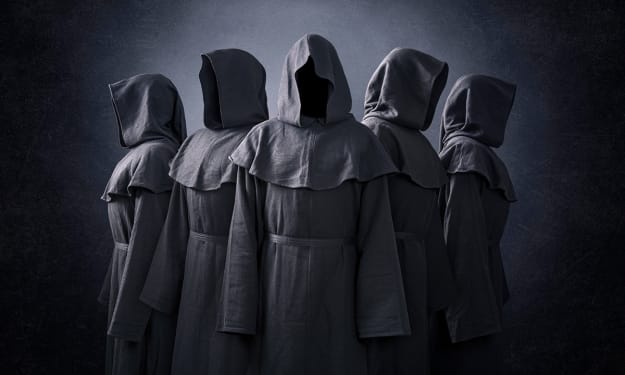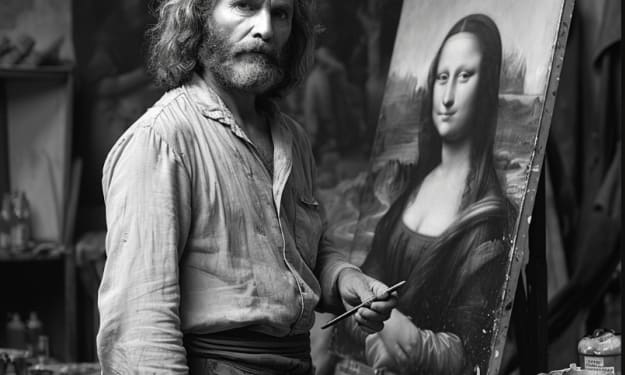The Time Traveler's Journal
A young historian discovers a journal from the 19th century that seems to have entries from the future

A young historian comes across a journal from the nineteenth century that appears to have future-looking entries. Eliza Turner, a youthful history specialist enthusiastically devoted to uncovering the past, had spent the better part of her scholarly profession in smelly documents and old libraries. She had forever been attracted to the nineteenth century, a period of incredible development and change. As a result, her interest was immediately piqued when she discovered a vintage leather-bound journal in a forgotten area of the university's archive. The diary had a place with a man named Edward Langley, a somewhat obscure figure from the 1800s. The ink had faded, but it was still legible, and the writing was clean and precise. As Eliza read, she immediately understood this was no standard diary. The initial few sections were common for the time, enumerating Langley's regular routine and logical pursuits. But then she noticed something.
January 12, 1865.
Today, I led one more trial with the gadget. The outcomes were mind-boggling. I saw a dream of a world not at all like anything I've ever known. Strange carriages without horses lined the streets, and the buildings rose to the sky. I should report everything fastidiously. Eliza's heart dashed. It sounded remarkably like the modern world from the description. As she flipped through the pages, she came across additional entries that talked about inventions and events that didn't happen until a long time after Langley.
March 23, 1867
The gadget keeps uncovering a greater amount representing things to come. I saw an extraordinary conflict crossing the globe, with machines of obliteration past my creative mind. To better comprehend these visions, I need to control them. The repercussions are mind-boggling. Eliza was taken aback. It appeared as though Edward Langley had seen into the future in some way. How, then? She had to find out about this secretive gadget he referenced. She read Langley's experiments and attempts to comprehend the nature of time in enticing but ambiguous terms for hours in the journal. Not entirely set in stone to uncover reality, Eliza dove into verifiable records about Edward Langley. She learned that he was a brilliant but eccentric inventor who was well-known for his unconventional theories about space and time. His peers had dismissed him as a liar, and when he died in 1870, his work was largely forgotten. Eliza's examination drove her to an old house that had once shared a place with Langley. She was able to enter the building, which had fallen into disrepair, with the assistance of the local historical society. As she investigated the dusty rooms, she tracked down a secret entryway behind a shelf. It took you to a small laboratory that was filled with strange tools and papers with cryptic notes on them. In the center of the room stood a curious machine. Eliza had never seen anything like it, a maze of glass tubes, levers, and gears. She found detailed diagrams of the device, which Langley had dubbed "The Chronoscope," among the papers.
June 5, 1869,
I have at last finished the chronoscope. This evening, I will endeavor to control the dreams and maybe even travel through time itself. If effective, this will be my most prominent accomplishment. The risks are immense, so I must proceed with caution. Eliza was both exhilarated and nervous at the same time. She understood that Langley had expected to utilize the chronoscope to go through time. Yet, had he succeeded? And if so, when and where had he left off? As she painstakingly inspected the machine, she found a secret compartment containing a little, fancy key and a last note from Langley.
To whomever finds my work,
assuming you are understanding this, it implies I have either succeeded or bombed in my undertaking. The key you have found is to the chronoscope. Use it carefully. Time's secrets should not be taken lightly. Keep in mind that the future, present, and past are all connected.
Edward Langley
Eliza took a full breath and embedded the key into the chronoscope. The machine hummed to life, the pinion wheels turning and the cylinders gleaming with a creepy light. She felt a weird sensation, as though the actual texture of the truth was moving around her. Out of nowhere, she ended up remaining in a clamoring, cutting edge city, similarly as Langley had portrayed it in his diary. The horseless carriages were smooth and quiet, and the structures took off considerably higher than she had envisioned. She was astonished to see that Langley's experiments had actually worked. Eliza took pictures of everything she saw as she explored the future world over the next few days. She realized she needed to get back to her own opportunity to share her revelations, yet the experience had changed her until the end of time.
She had witnessed the potential outcomes representing things to come and the persevering through tradition of Edward Langley. At the point when she at last got back to the present, she composed a thorough report on her discoveries, guaranteeing that Langley's work could at no point ever be failed to remember in the future.
A testament to the brilliance and vision of a man who dared to look beyond the constraints of his time, the journal and the Chronoscope became prized university exhibits. Eliza kept doing her research because of Langley's bravery and inventiveness. She was aware that there were still a lot of unsolved mysteries, both in the past and in the future. She had the Chronoscope, so she was ready to investigate all of them.
About the Creator
zahid ahmed
I am a dedicated content writer with a passion for crafting compelling and engaging narratives. With a keen eye for detail and a deep understanding of the digital landscape, I bring ideas to life through words.
Enjoyed the story? Support the Creator.
Subscribe for free to receive all their stories in your feed. You could also pledge your support or give them a one-off tip, letting them know you appreciate their work.






Comments
There are no comments for this story
Be the first to respond and start the conversation.